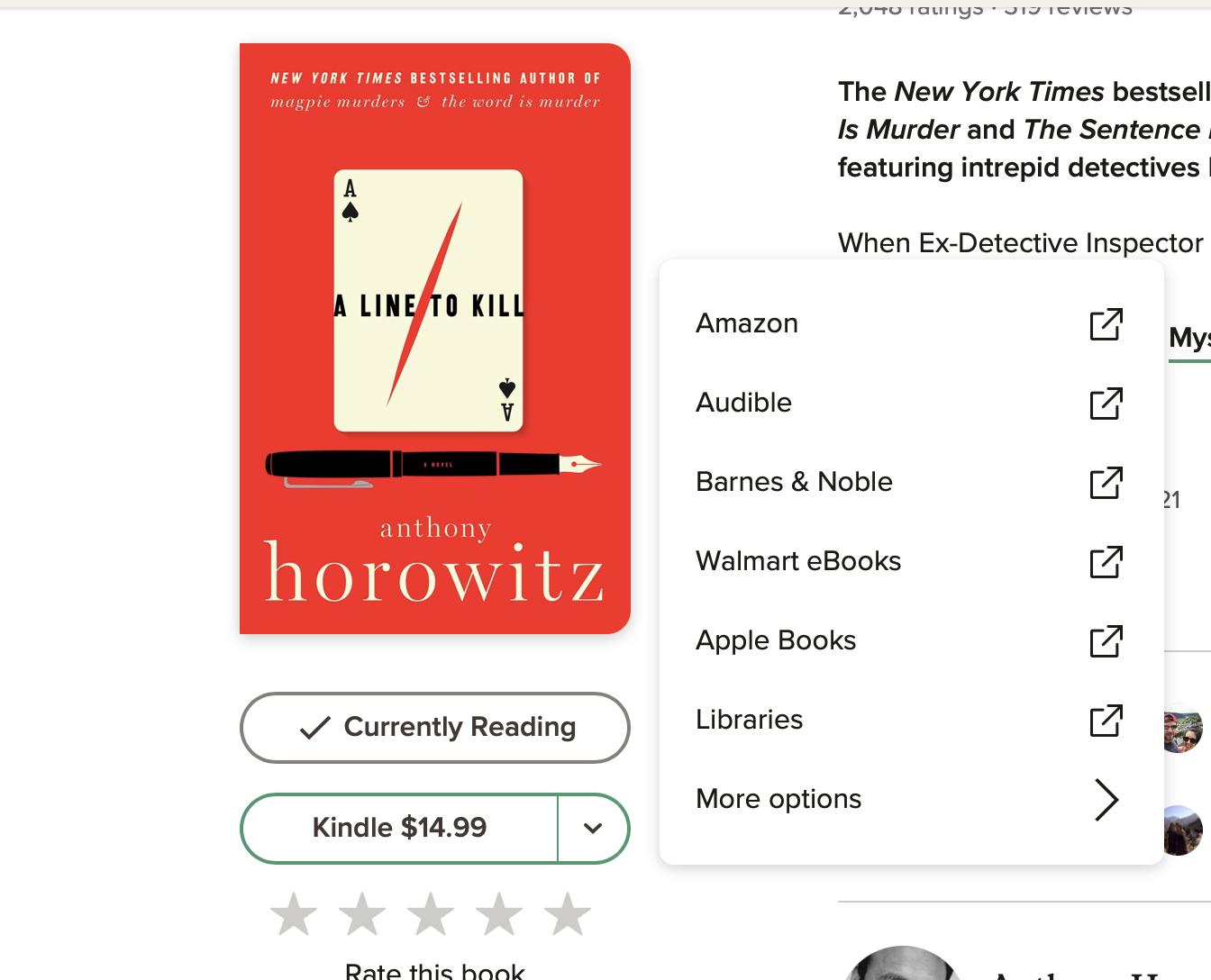Who Owns Goodreads?
Goodreads Beginnings
Goodreads was launched in 2007 by married partners Otis Chandler and Elizabeth Kaur Chandler. According to Goodreads, Otis said he wanted to recreate the experience of walking into a friend’s living room and checking out their bookshelves. He was also inspired by the bookish blogosphere, where readers were commenting on reviews across blogs. Goodreads was designed to create a platform site for those reviews. Add in the digital book tracking via “shelves,” and the site was born. Goodreads was designed as a “long tail content” site, meaning its value comes from its breadth of content. The site holds millions of reviews about millions of books. Efficient SEO drives most people who search “Book Title + review” to Goodreads.
Kindle Integration
Goodreads as Storefront
Goodreads is a Data Goldmine
There are 90 million Goodreads users flagging books as to-read and read and doling out several galaxies-worth of stars as they rate and review books. All those clicks give insight into individual reader preferences and potentially create the reader’s own custom-designed literary concierge that can predict your next five-star read. Supposedly, Goodreads is using machine learning to make recommendations. However, if you’ve ever puzzled over Goodreads “personalized recommendations,” it’s clear that Goodreads hasn’t put much effort in that direction. (Good thing there are actual humans at TBR who can help a reader out.)
Your Attention, Please: The Value of Reader Interaction
Ultimately, a huge value in Goodreads is the reader interaction. As noted above, that interaction breeds tons of valuable data. But just having your attention is valuable too. Michael Goldhaber predicted the massive currency of screentime way back in 1997 when he coined the “attention economy.” The term refers to the idea that our attention is a scare resource — you can only process one thing at a time. Goldhaber said of our mental bandwidth, “Ultimately then, the attention economy is a zero-sum game. What one person gets, someone else is denied.”
